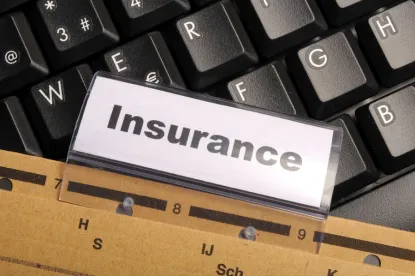A California state court denied an insurer’s motion to dismiss Goodwill Industries of Orange County’s COVID-19 business-interruption claim after an apparent reassessment of how California’s federal courts have applied (or, rather, misapplied) California precedent to COVID-19 cases. The case is Goodwill Industries of Orange County, California v. Philadelphia Indemnity Insurance Co., No. 30-2020-01169032-CU-IC-CXC (Cal. Super. Ct. Jan. 28, 2021).
A single appellate case, issued years ago, long before the conception of COVID-19 and its resulting losses, has taken center stage in California COVID-19 litigation: MRI Healthcare Center of Glendale, Inc. v. State Farm General Insurance Co., 187 Cal. App. 4th 766 (2010). The MRI court considered whether an MRI machine’s failure to “ramp up” due to an internal defect after it was “ramped down” (or demagnetized) constituted a covered loss. The court found that it was not, because “loss” required “some external force must have acted upon the insured property to cause a physical change in the condition of the property.” Id. at 780 (emphasis added). The MRI machine’s failure to turn back on after it was turned off “emanated from the inherent nature of the machine itself rather than actual physical ‘damage.’” Id.
The Goodwill court recognized that California federal courts interpreted MRI to “require a physical change in the property or permanent dispossession of the property to qualify as ‘direct physical loss’.” Without commenting on the soundness of this interpretation, the California state court pointed out in Goodwill that neither party had cited to a California state case resolving the question of whether coronavirus or COVID-19 caused “direct physical loss” to property.
In any event, the Goodwill court also found that the policyholder’s express allegations that coronavirus and COVID-19 caused direct physical loss and damage to its property set Goodwill’s claim apart from those brought in federal court. Goodwill alleged:
-
Coronavirus and COVID-19 are contained in respiratory droplets called aerosols that stay on surfaces and in the air for up to a month;
-
They physically alter the air and surfaces to which they attach and cause them to be unsafe, deadly and dangerous;
-
Coronavirus and COVID-19 were present at Goodwill’s properties at the time of the State and County closure orders; and
-
When Goodwill reopened its properties, its employees tested positive, and it was required to conduct “additional cleaning and sanitization to respond to and remove the coronavirus and COVID-19 from physical surfaces in its insured premises and properties in accordance with public health orders that require such measures to protect against the coronavirus and COVID-19.”
Construing these allegations as true, the court could not agree as a matter of law that they did not show “direct physical loss” in accordance with MRI. According to the court, unlike Goodwill, the policyholders in the previously-decided federal cases did not allege that COVID-19 physically transformed their property. Allegations matter.
Finally, the court noted the “different standard” applied by federal courts. On the demurrer standard before it, the Goodwill court was not satisfied that it had a “sufficiently full record…to make the determination as a matter of law that the coronavirus and COVID-19 have not, in some manner, cause damage to property.”
The Goodwill court’s determination is in step with other trial court’s decisions outside of California, and it reflects a well-reasoned approach to California precedent and application of state substantive law to the allegations pled in COVID-19 business-interruption claims.





 />i
/>i

